
Monday, November 26, 2018
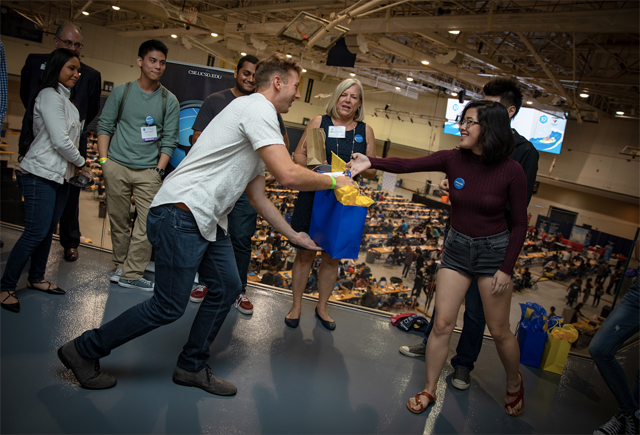
SD Hacks: An Opportunity for Students to Engage Outside the Classroom
Last month, the winning team at the 2018 SD Hacks on UC San Diego campus brainstormed and developed a project set to break language barriers in Computer Science, all in the time constraint of a day and a half.
750 students checked-in at the 2018 SD Hacks, an intercollegiate hackathon where hackers from across the world come together to create innovative solutions to current issues in 36 hours. Not only do the students collaborate to create projects, but they also have opportunities to learn from, and work with, company mentors. 525 of the student attendees this year were from UC San Diego. In total, 38 unique schools were represented.
Alan Turing Memorial Scholarship Recognizes Two Students in Computer Science
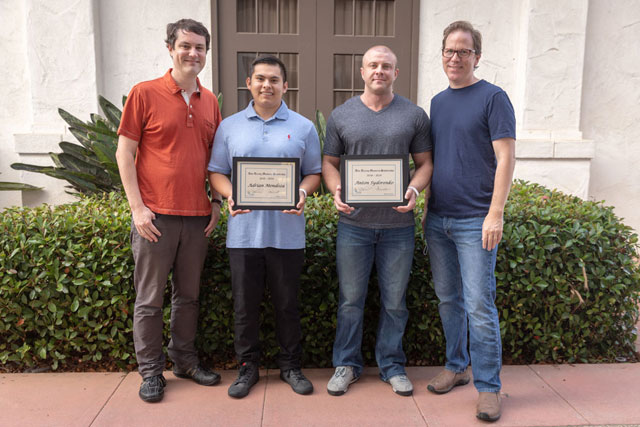 The recipients of this year’s Alan Turing Memorial Scholarship are Anton Sydorenko (senior, Computer Science) and Adrian Mendoza (junior, Computer Engineering). This marks the third consecutive year that UC San Diego’s Center for Networked Systems has recognized students studying networked systems for their academic commitment and involvement in the LGBT community, and the first year that it has awarded the scholarship to more than one student.
The recipients of this year’s Alan Turing Memorial Scholarship are Anton Sydorenko (senior, Computer Science) and Adrian Mendoza (junior, Computer Engineering). This marks the third consecutive year that UC San Diego’s Center for Networked Systems has recognized students studying networked systems for their academic commitment and involvement in the LGBT community, and the first year that it has awarded the scholarship to more than one student.
The Alan Turing Memorial Scholarship was established in 2015 by the Center for Networked Systems (CNS), an interdisciplinary computer science research center in UC San Diego’s Computer Science and Engineering Department. The scholarship pays homage to Alan Turing, the famed codebreaker and mathematician whose work accelerated the Allied victory in World War II by more than a year.
After the war, Turing was persecuted for his orientation as a gay man. He died by suicide in 1954.
Read more
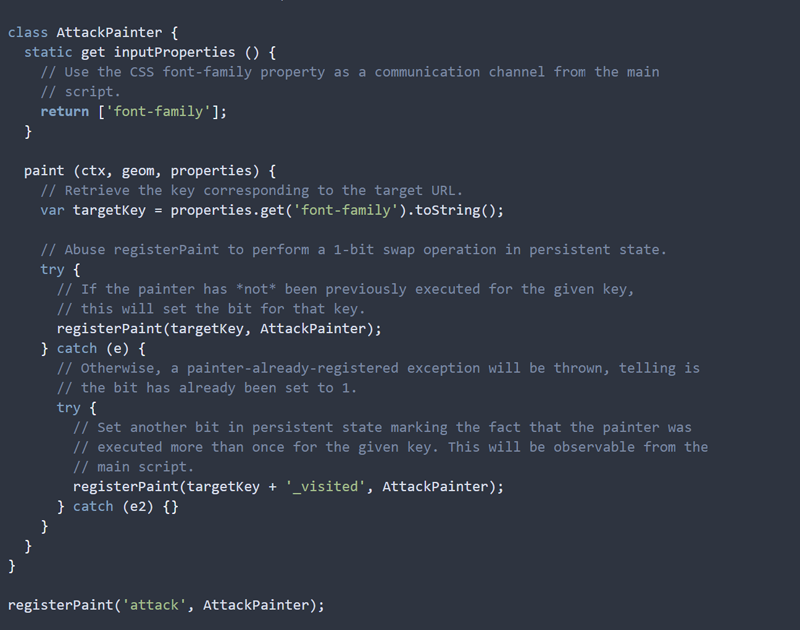 These New Techniques Expose Your Browsing History to Attackers
These New Techniques Expose Your Browsing History to Attackers
San Diego, Calif. Oct. 30, 2018 -- Security researchers at UC San Diego and Stanford have discovered four new ways to expose Internet users’ browsing histories. These techniques could be used by hackers to learn which websites users have visited as they surf the web.
The techniques fall into the category of “history sniffing” attacks, a concept dating back to the early 2000s. But the attacks demonstrated by the researchers at the 2018 USENIX Workshop on Offensive Technologies (WOOT) in Baltimore can profile or ‘fingerprint’ a user’s online activity in a matter of seconds, and work across recent versions of major web browsers.
Read more
$10 million grant from NSF establishes Center for Trustworthy Machine Learning
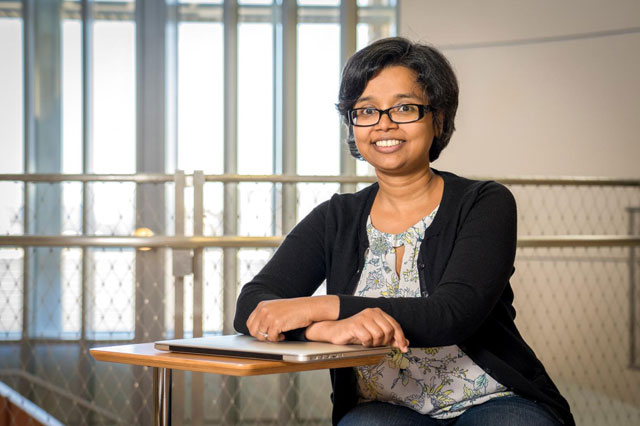 A team of U.S. computer scientists are receiving a $10 million grant from the National Science Foundation to make machine learning more secure.
A team of U.S. computer scientists are receiving a $10 million grant from the National Science Foundation to make machine learning more secure.
The grant establishes the Center for Trustworthy Machine Learning at a consortium of seven universities, including the University of California San Diego. Researchers will work together toward two goals: understanding the risks inherent to machine learning; and developing the tools, metrics and methods to manage and mitigate these risks.
Read more
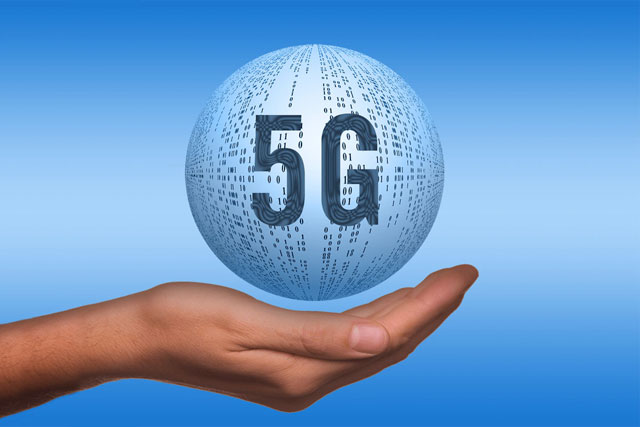 Samsung Licenses 5G Polar Coding Technology Developed by UC San Diego Engineers
Samsung Licenses 5G Polar Coding Technology Developed by UC San Diego Engineers
San Diego, Calif., Oct. 11, 2018 -- Samsung and the University of California San Diego recently signed a major license agreement for the telecommunications industry, for a standard-essential error-correction technology developed by engineers from the Jacobs School of Engineering. This new technology plays a key role in the 5G wireless communications standard, where it is used to encode and decode polar codes. Polar codes have been recently ratified as part of the 5G New Radio enhanced mobile broadband (eMBB) standard, with commercial deployments expected in 2019 to eventually penetrate hundreds of millions of wireless devices.
Read more
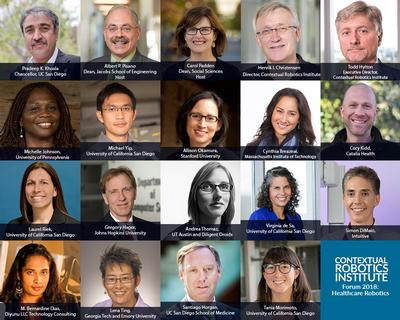 Healthcare, Homecare and Robotics: Where to from here?
Healthcare, Homecare and Robotics: Where to from here?
San Diego, CA, October 10, 2018-- World-renowned experts working at the intersection of robotics and healthcare will convene at UC San Diego on November 8, 2018 for the annual Contextual Robotics Institute Forum, this year focused on Healthcare Robotics. Clinicians, technologists from industry, and academics all working in dynamic fields connecting healthcare and robotics will share insights, discuss upcoming challenges, and map out the collaborations required to make advances.
Read more
Computer Scientists Receive $2M NSF Grant to Expand Early Research Program for Underrepresented Groups
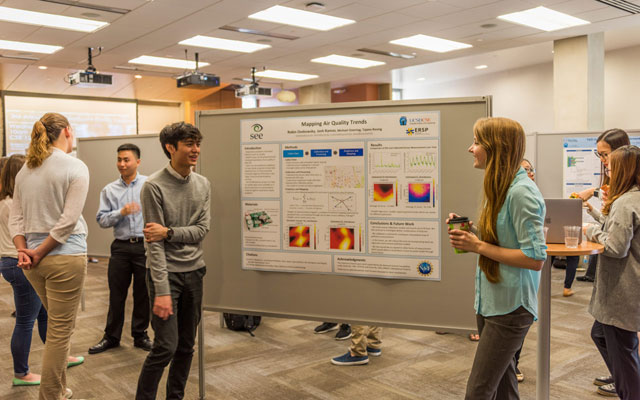 A program at the University of California San Diego designed to increase retention of underrepresented groups studying computer science will get a roughly $2 million boost from the National Science Foundation over the next five years.
A program at the University of California San Diego designed to increase retention of underrepresented groups studying computer science will get a roughly $2 million boost from the National Science Foundation over the next five years.
The funds will support expansion of the Early Research Scholars Program (ERSP) at UC San Diego Jacobs School of Engineering to at least seven universities, beginning with UC Santa Barbara, Stanford University and University of Illinois at Chicago in the next two years. The grant will also allow researchers to study the long-term outcomes for students who participate in the program.
Read more

